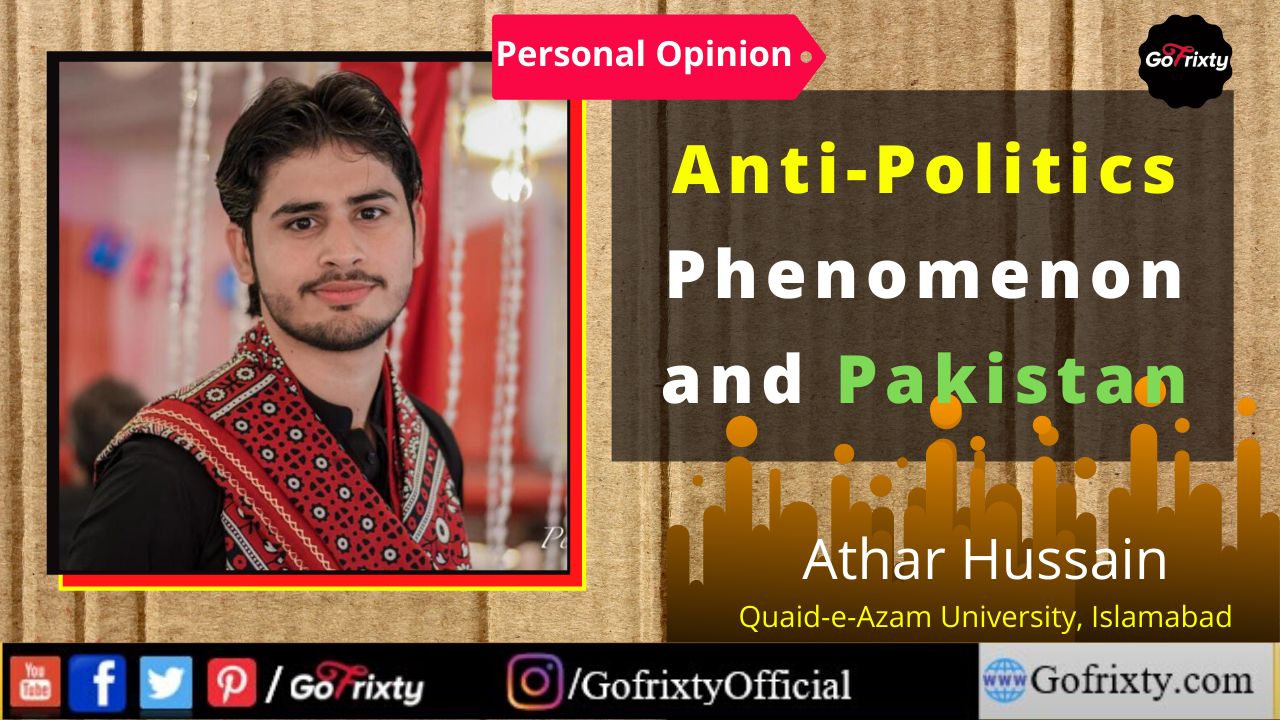Aristotle had once said, “Man is by nature a political animal.” This quotation portrays the natural approach of individuals towards politics means politics can not be segregated from the lives of masses. Politics is the persuasion of interests through the art of bargaining. Moreover, it is an effort to secure one’s rights and values. Politics is an evolution of mental approach and understanding, for it prefers negotiation, cooperation, and peaceful means to resolve conflicts than hostile means of using violence. In developed countries, youth is highly encouraged to be part of Politics, for they have the vision to evolve their society. Meanwhile, there are plenty of platforms that paves the way for youth to step into mainstream or state holding politics. But, the approach towards Politics in developing or third world countries like Pakistan is quite ambiguous and uncertain. They are most vulnerable to the anti-politics phenomenon.
Also Read ???? Temple dilemma and Imran Khan government
In Pakistan, the spirit of Politics among most of the youngsters is on the edge of aloofness and this narrative in our society has deep historical roots since the inception of Pakistan. If Politics in Pakistan is critically analyzed in Post-independence era, there will not be any apparent step taken to attract youth towards Politics. Rather no stone is left unturned to defame and to visualize politicians or people interlinked with politics as culprits, corrupts, and demogauges.
When Pakistan became an independent state, it fell in the hands of an oligarchy which is solely the reason for creating an anti-politics phenomenon in society. Initially, when bureaucrats held the state mechanism they pursued policies and laws as per their will. Worst was the thing that a single person at that time of Governor-General had the discretionary powers which were unchallengeable on any of the platforms. Additionally, all the voices used to be suppressed if uttered against policies of that time.




